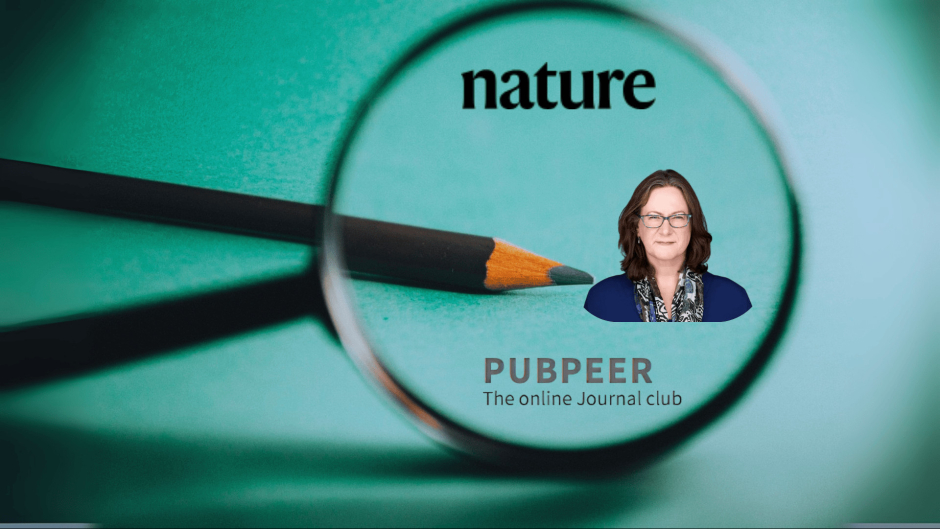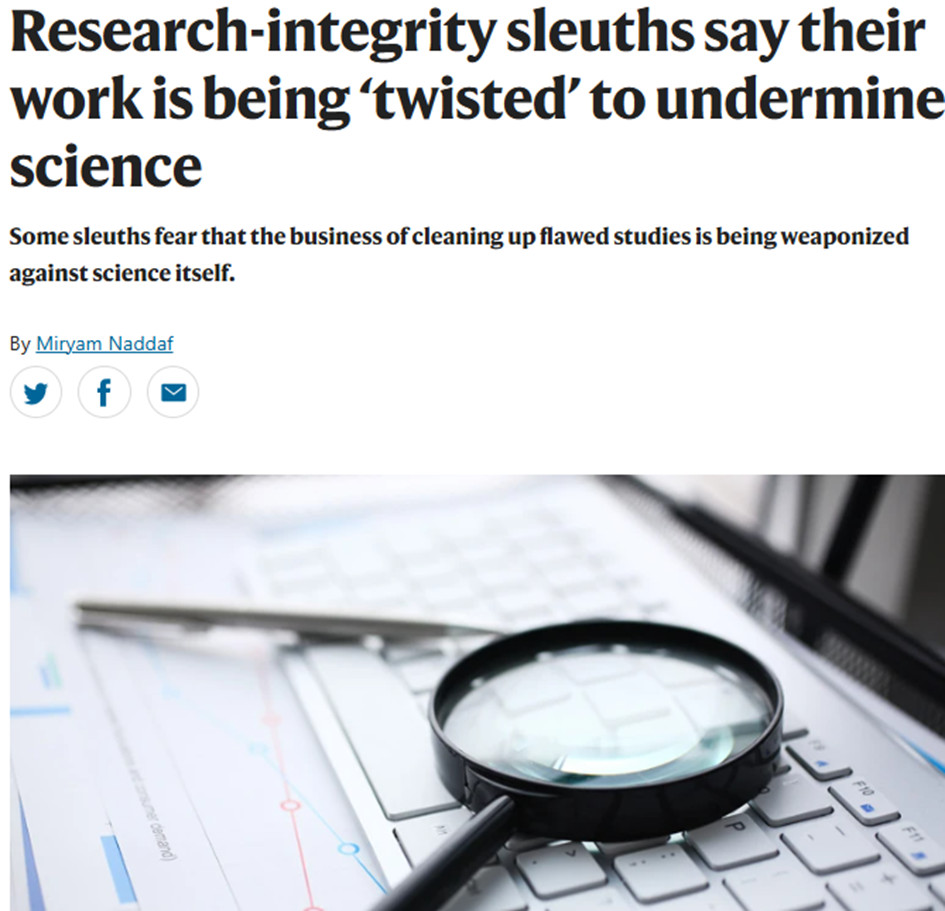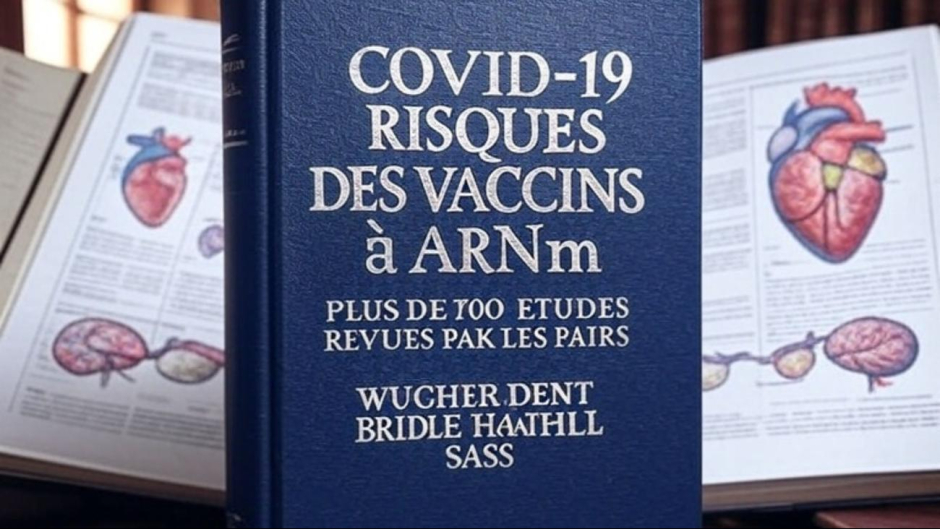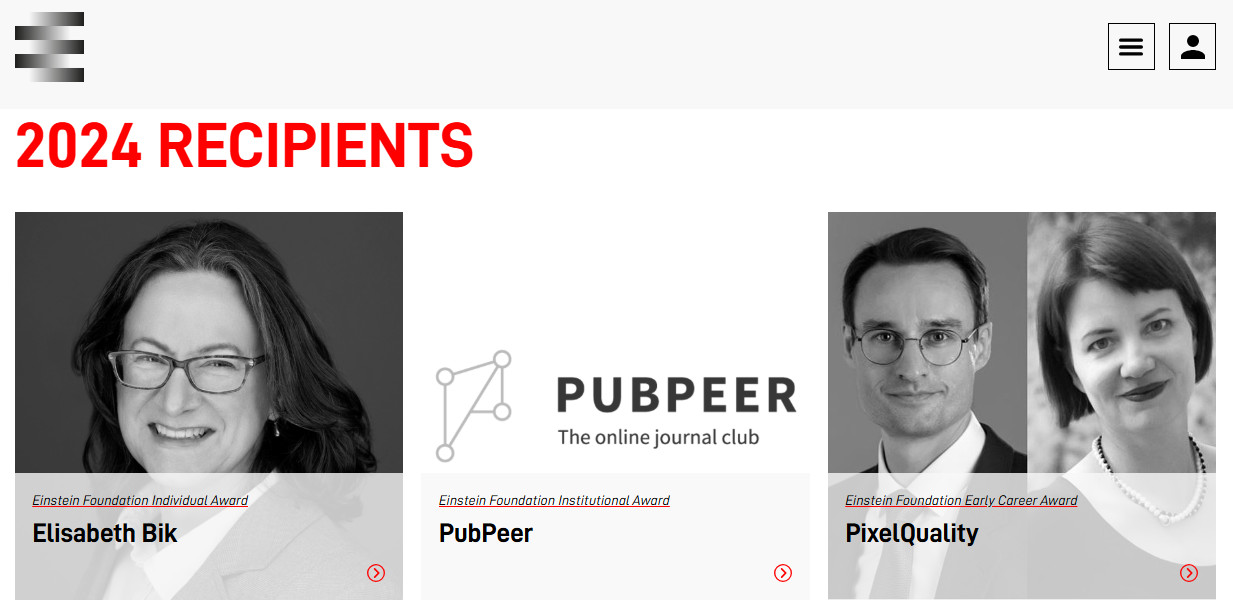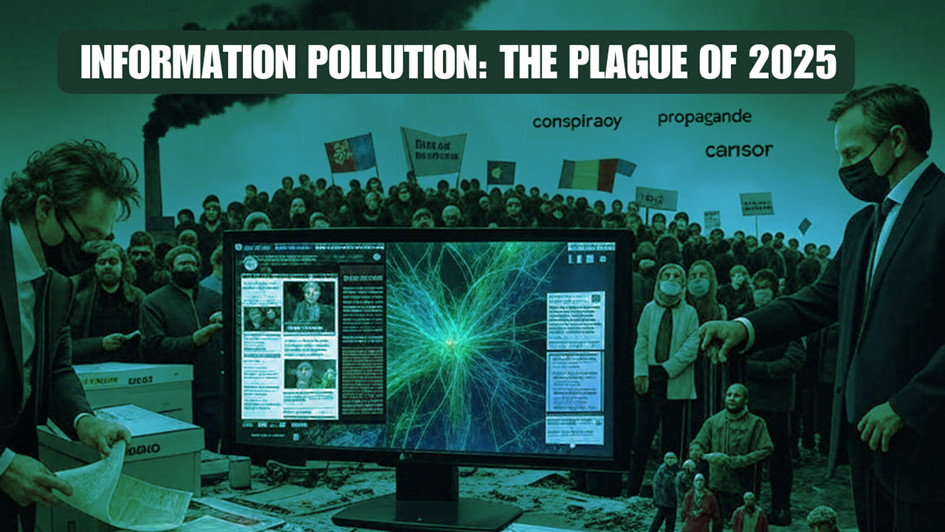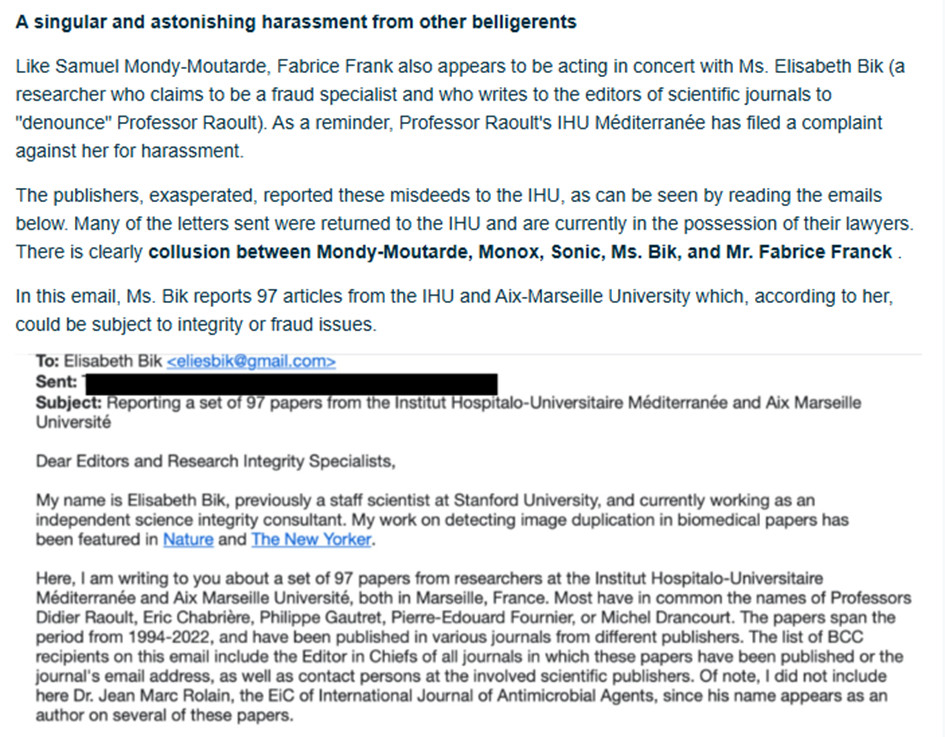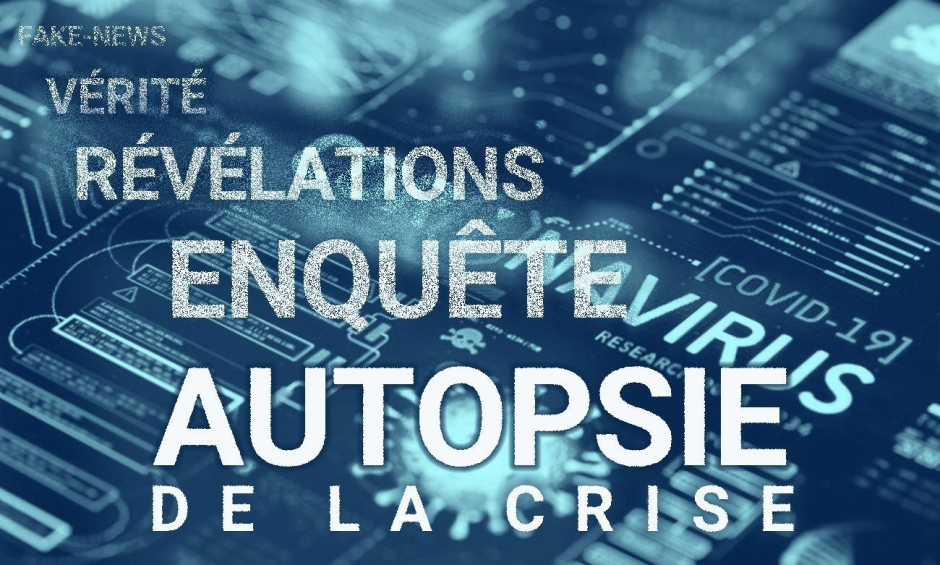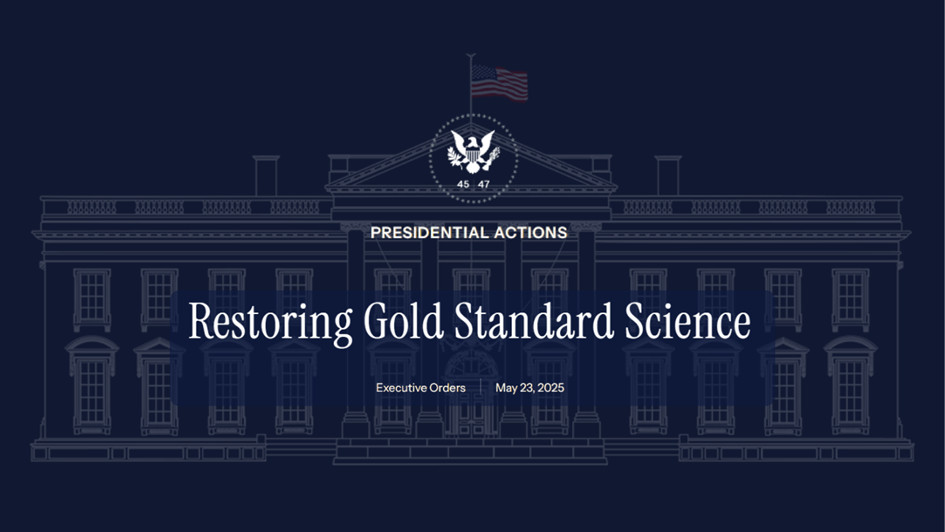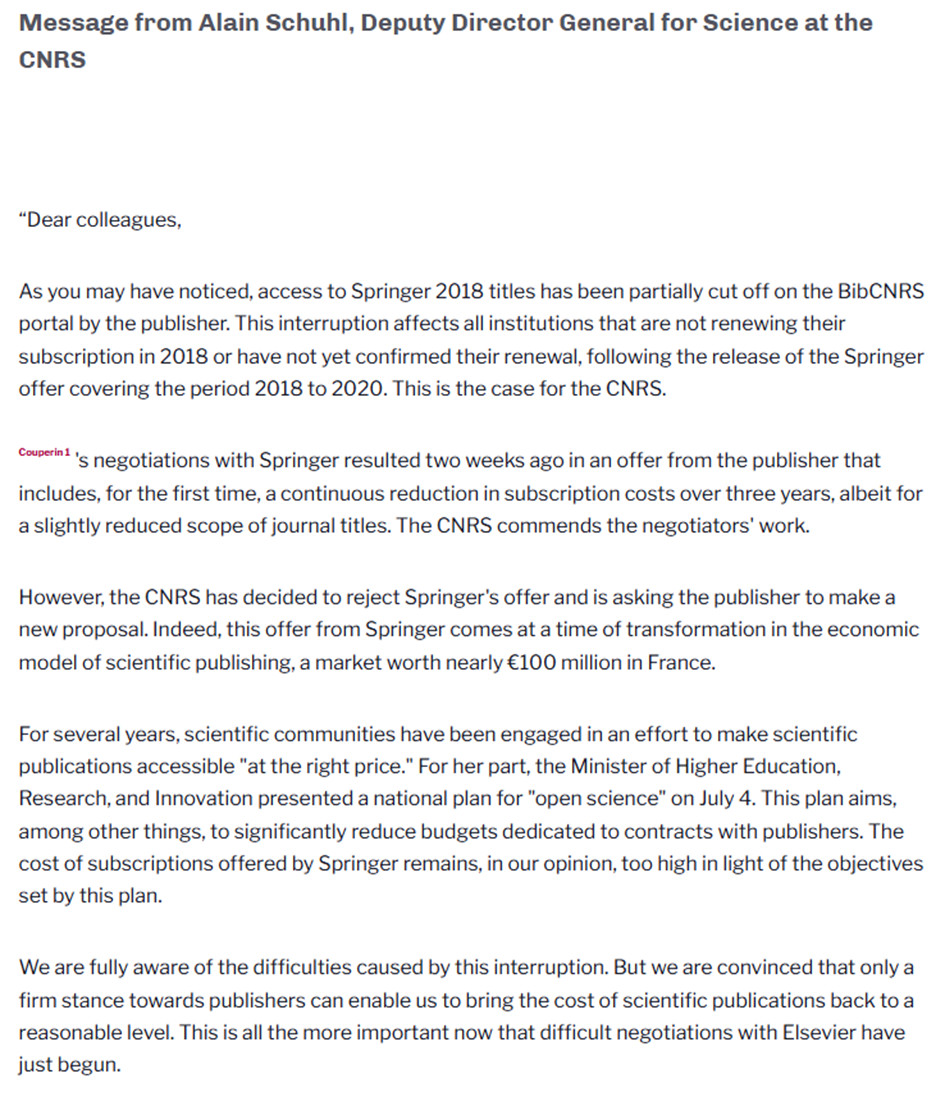Le Collectif Citoyen, France-Soir
Scientific Integrity Crisis: Nature, Bik, and PubPeer Face Accusations of Information Pollution
Pixabay, France-Soir
On July 11, 2025, the journal Nature finds itself at the heart of an unprecedented crisis, accused of editorial bias and information pollution by ScienceGuardians TM (@SciGuardians) following a propagandistic article and therefore unworthy of a journal like Nature, an article by Miryam Nadaff published on July 9, 2025. By unreservedly supporting self-proclaimed detectives of scientific integrity like Elisabeth Bik, while ignoring their errors and controversies, Nature endorses information bias and places itself in direct opposition to the principles of the American decree " Restore the Gold Standard in Science" (May 20, 2025). France-Soir's investigations, the work of Charles Vidal and Didier Raoult, the revelations of Science Guardians TM, and criticism from epidemiologists like Nicolas Hulscher expose "harassment" networks involving, among others, Bik and PubPeer, potentially fueled by the financial interests of Springer Nature. This article analyzes these abuses, explores the legal implications, and calls for urgent reform to restore trust in science.
Miryam Nadaff's bias: a more than compromised objectivity
The article by Miryam Nadaff, associate editor at Nature, celebrates scientific integrity detectives, notably Elisabeth Bik, for their role in detecting fraud, such as the retraction of Lesné et al.'s article on Alzheimer's (Nature, 2006). Several authors of the publications in Nature Springer presented Didier Raoult's criticisms, accusing Bik of "blackmail" and "harassment," as defensive reactions, without analyzing them in depth. This suggests blatant editorial bias that is not consistent with scientific ethics, one of the reasons for the DOJ investigations targeting certain publications.
By giving unconditional support to Bik and his cronies, Nadaff omits major controversies :
- Documented errors : The report by Charles Vidal and Didier Raoult ( HAL, 2025) demonstrates that a report by Bik on PubPeer concerning a duplication of images in a publication by the IHU Méditerranée Infection is erroneous. Using GIMP and the FAST Feature Detector algorithm, the authors show a difference of 3% between the reported areas (thresholds of 0.9999 and 0.97), excluding intentional manipulation. Already in an article in February 2024, Charles Vidal and Xavier Azalbert criticized Bik's methods as "subjective" and "non-reproducible". "By dint of seeing fraud everywhere, she finds some!"
- uBiome's Dark Past : Bik worked for uBiome (2016-2018), a company raided by the FBI for fraud ( February 6, 2024). While there is no evidence directly linking her to the fraud, other than a suggestion that "Bik made a deal with the Feds," this omission by Nadaff suggests a real lack of transparency and a desire to show Bik in the best light." This is really not what you expect from a reputable journal like Nature ; it's no longer science, but propaganda," explains a world-renowned scientist.
- Harassment Complaint : The IHU filed a harassment complaint against Bik in 2021, which was dismissed in 2024. However, other complaints are ongoing, and by ignoring these controversies and the facts demonstrated by ScienceGuardiansTM , Nadaff reinforces the impression of bias.
Nature's Vaccine Bias : A major bias concerns vaccination. A library of more than 700 peer-reviewed studies questioning mRNA vaccines against Covid-19, highlights risks such as myocarditis, thrombosis, and long-term effects.
Epidemiologist Nicolas Hulscher denounces the invisibility of these studies by journals like Nature, accusing a "blackout" orchestrated against scientists critical of vaccine narratives. Nadaff and Nature reportedly do not mention any of them, favoring a one-sided narrative favorable to vaccines, which compromises their credibility.
Editorial implications : By ignoring Bik's mistakes, his past, and criticism of vaccination, Nadaff adopts a biased stance aligned with the interests of SpringerNature, Nature's parent company. This approach runs counter to journalistic standards of balance and transparency, suggesting that Nature prioritizes an institutional narrative over scientific rigor.
The Einstein Prize: a controversial legitimacy
In November 2024, the Einstein Foundation awarded its annual prize to Elisabeth Bik ($200,000) for her work in image detection, to PubPeer ($200,000) for its post-publication review platform, and to PixelQuality ($100,000) for its image analysis tools. This prize, sponsored in part by Nature Portfolio, a subsidiary of Springer Nature, is intended to recognize contributions to scientific integrity.
Criticism and suspicions are flying. Starting with the choice of winners :
- Ignorance of Bik's errors : The jury appears to have ignored Vidal and Azalbert's investigation and Vidal and Raoult's report, which proves the inaccuracy of one of Bik's reports and criticizes his subjective methods. This omission suggests a lack of rigor or impartiality in the evaluation of candidates.
- Potential conflict of interest : The sponsorship by Nature Portfolio, which published Nadaff's article defending Bik, fuels suspicions of biased institutional legitimacy. The fact that Nature is involved in the prize and in promoting Bik and PubPeer reinforces the idea of a closed circle where scientific integrity is used to whitewash questionable practices. If this were the case on Eurovision or other game shows, listeners would have cried foul long ago.
- PubPeer and ethics : The award of $200,000 to PubPeer, accused after a detailed investigation by Science Guardians ( here, and here) and France-Soir) of serving as a platform for scientific harassment, calls into question the neutrality of the jury. Why didn't they do a minimum of research?
Impact on credibility : This award, intended to celebrate integrity, appears more like a tool of thanks for good and loyal service in the context of an operation to whitewash erroneous information, by validating controversial actors without examining the criticisms. This legitimization by an institution linked to Nature reinforces the questions of information pollution, where dubious reports are amplified to discredit researchers like Professor Didier Raoult.
Information pollution and laundering of false information
Information pollution refers to the dissemination of biased, incomplete, or erroneous information to influence public opinion. Misinformation laundering occurs when prestigious institutions, such as Nature, legitimize this information by giving it scientific authority.
Nadaff's article illustrates these phenomena by amplifying Bik's reports without acknowledging their flaws, while simultaneously ignoring critical studies on vaccination or health containment policies.
The "harassment sphere": a coordinated network
In a multi-year investigation, France-Soir describes the "harcelosphere" as a network involving Bik, doctors (Nathan Peiffer-Smadja, Damien Barraud), and activists (Sonic_urticant, Fabrice Frank), targeting the IHU Méditerranée Infection, Raoult, and France-Soir via PubPeer and social networks ( September 23, 2021, September 13, 2022, November 17, 2023). An infiltration by "Kim Philby" (@AgainstRaoult), supported by the France-Soir Citizen Collective, revealed a "modus operandi" to attack Raoult and his collaborators, including documents exchanged by Sonic_urticant which, noted by a bailiff, were handed over to the courts.
Science GuardiansTM et PubPeer
Science Guardians, in posts on X ( here, and here), accuses PubPeer of serving as a platform where "fraud detectives" like Bik violate scientific ethics to harass researchers under the guise of integrity.
If networks like X or Telegram are investigated for cyberbullying, PubPeer could also be targeted by judicial investigations, given the incriminating evidence presented by Science Guardians.
Nature Springer: A Laundering Loop?
ScienceGuardians TM claims that publishers like Nature Springer, via Nadaff and the Einstein Prize, would complete the cycle of laundering false information. This is also the mechanism observed by France-Soir in its investigations on the harcelopshère ( Panorama of a scam ; Autopsy of a column on the crisis), where harassment and the cycle of laundering allows biased reports against the IHU to be legitimized.
The " Trend Fabrication," an article published in France-Soir, analyzes how media outlets and magazines orchestrate narratives to serve financial interests, raising the possibility of insider trading, where biased information is disseminated to influence regulators and politicians. This would, among other things, allow for a violation of free and informed consent and billions of dollars for the instigators.
The role of France-Soir : a critical voice for the truth
France-Soir played a key role in exposing the "harassment sphere," with detailed investigations demonstrating coordination against the IHU and Raoult ( here, and here). These articles analyze the manipulations surrounding Covid-19 (diagnoses, treatments, vaccines), revealing systemic biases in scientific publications in favor of vaccines and against early treatments.
The France-Soir Citizen Collective supported the infiltration by "Kim Philby," proving the existence of an organized network. The article in " True Lies and False Truths" denounces modern standards of propaganda, where journals like Nature disseminate biased narratives to serve financial or ideological interests. It illustrates that the truth, constructed through "labor and real observations," progresses slowly, while the lie, financed by "dollars," takes the elevator. The second half of 2025 could reveal the truth about these excesses, validating the efforts of France-Soir since 2020 and the recent in-depth investigations of ScienceGuardians TM.
France-Soir's investigations demonstrate a rigor in the analysis of scientific and media biases, which explains the desire of these detectives and harassers to label France-Soir and make it invisible in order to turn readers away. Being right too soon can be "harmful," but persistence and consistency, while respecting journalistic ethics, could change the situation.
The "Restore the Gold Standard in Science" decree: a call for transparency
Signed on May 20, 2025, the decree, led by Dr. Jay Bhattacharya, requires transparency of raw data, open scientific debates and the elimination of conflicts of interest.
Also, recently, there has been much criticism of the epidemiological models used to justify health measures in 2020. Wood's study analyzes Covid-19 epidemiological models, published in journals such as Nature, which overestimated risks (mortality, hospitalizations) due to non-transparent data and statistical bias. Statistician Sander Greenland criticizes these "mathematical arrangements," pointing to unvalidated assumptions (for example, on the lethality of the virus). These models justified containment policies, causing economic and social damage, without solid evidence of their effectiveness. Nature never addressed these flaws, contradicting the decree's call for transparency.
Nature ignores the 700 peer-reviewed studies on the dangers of mRNA vaccines. Nicolas Hulscher denounces this censorship, arguing for an urgent need for open debate. These omissions contradict the decree's objectives and reinforce accusations of information pollution.
In an interview, Professor Didier Raoult denounces the influence of the pharmaceutical industry and publishers like Nature, accused of compromising scientific integrity. He points out that funding (exceeding the French military budget) promotes biased science, and welcomes Bhattacharya's reforms to restore meritocracy. Raoult criticizes the "science war" fueled by actors like Bik, aligning his speech with the objectives of the decree.
DOJ Investigations, Contract Cancellations, and Insider Trading
The DOJ is investigating scientific journals for potential biases leading to fraud, including peer review manipulation and "paper mills." A Nature study estimates 70,000 fraudulent articles will be published in 2022, but Nadaff omits these investigations.
With these factors in mind, the Trump administration canceled contracts with Springer Nature for bias and junk science. This decision, aligned with the executive order, suggests that a thorough investigation into certain publishers may well extend to Springer Nature publications.
Springer Nature expects its revenue to increase by 5% in 2025 to €1.89-1.94 million, with an adjusted profit of €512 million, and predicts an increase in 2025 thanks to Open Access. The scientific publishing industry is almost as profitable as the IT industry with 27% profit! Shareholders include BC Partners (majority since 2013) and Holtzbrinck Publishing Group (merger in 2015), with an IPO in October 2024 strengthening its funds ( Annual Report 2024). These financial ties, combined with contracts with the NIH and pharmaceutical companies, raise suspicions of conflicts of interest.
France-Soir analyzes insider trading where publishers like Springer Nature could orchestrate biased narratives by selecting certain studies over others (vaccines, integrity) to influence regulators and politicians, favoring profits at the expense of ethics. A review by the NIH, the DOJ, and the French authorities is urgent, especially to protect researchers like those at the IHU and especially the interests of patients.
The Couperin agreements and ongoing audits
In France, the Couperin agreements award €33 million to Elsevier and several million over three years to Springer Nature. These agreements were justified by the idea that joint purchasing would reduce the cost per article. However, since the allocated publication quotas are not fully used, the effective cost per publication amounts to €7,000 per article for Elsevier, which benefits only the publisher, while taxpayers once again bear the loss.
The Ministry of Research is reportedly conducting an audit to examine Elsevier's unused rights and complaints against journals like Nature for harassment of French researchers, particularly at the IHU. A review of scientific publishing is necessary to prevent science from being captured by private interests.
In 2018, the CNRS broke off agreements with Springer Nature on the grounds that they were too expensive. In 2025-2026, will we see the Ministry of Research take into consideration the pernicious role of publishers, reinforcing suspicions of editorial bias and the instrumentalization of publications against the interests of patients?
Analogy with the subprime crisis
Nature's excesses can be compared to what happened during the subprime crisis (2007-2008), when rating agencies encouraged savers to buy risky products.
In the context described by France-Soir, and in the revelations of ScienceGuardianTM, scientific publishers (including Nature) and the media, are shown as having contributed to the laundering of erroneous information (vaccines, Covid-19 models, early treatments) for the benefit of pharmaceutical companies, influencing regulators to approve products with uncertain benefits and poorly assessed risks. They also supported individuals who used these journals and platforms like PubPeer to harass scientists both in the United States and in France. This "pursue or life" situation puts populations at risk, and judicial investigations could bring down those responsible if politicians do not act.
Conclusion
Nadaff's article embodies a crisis of scientific integrity, with Nature, Bik, and PubPeer contributing to information pollution and error laundering. The France-Soir investigations, the Vidal/Raoult report, and the ScienceGuardians TM revelations, combined with Wood's study and Hulscher's criticisms, demand reform and consideration by French authorities. The Bhattacharya-backed "Restore the Gold Standard" decree, along with the DOJ investigations and Couperin audits, could force Nature to account in the United States. Ongoing criminal complaints could well lead to indictments of these individuals. Will it have taken 5 years for justice to be served?
The truth, built with gradual labor, will eventually prevail, as in the fable of the hare and the tortoise.
